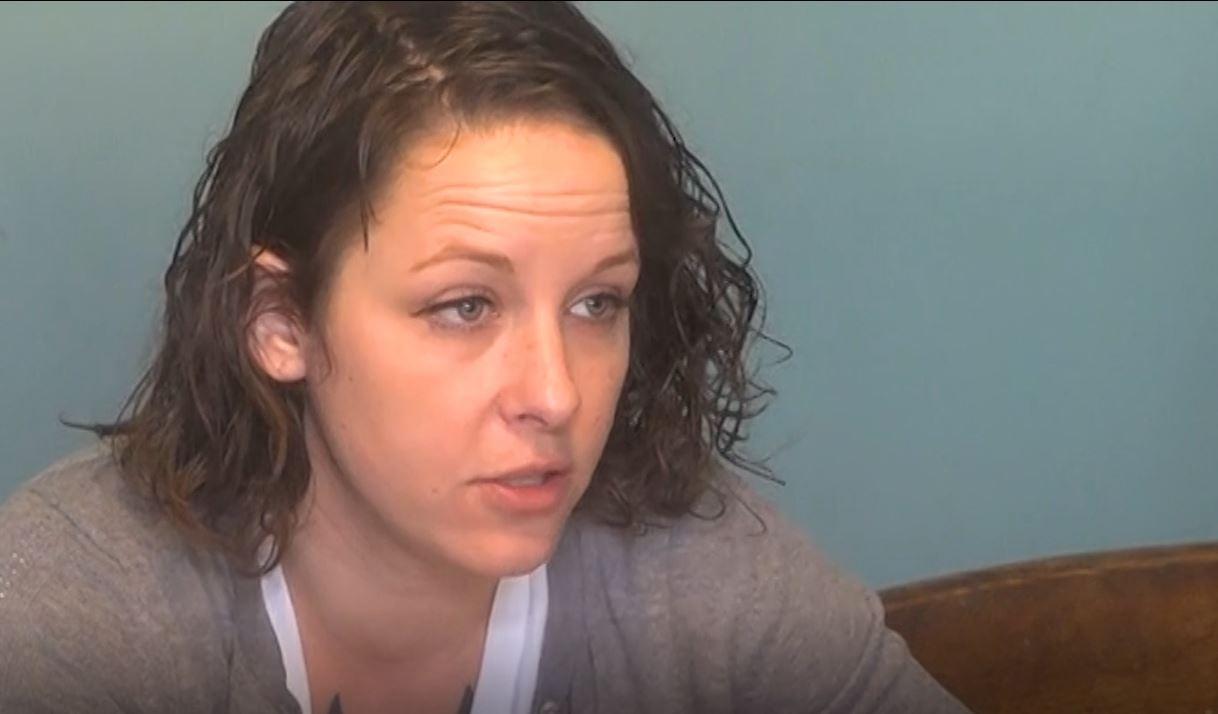WILLOW GROVE, Pa. (WLVT) - When two students at Columbine High School killed 13 students in 1999, they shattered the public’s trust that kids were safe in school. Coming up on the 20th anniversary of the massacre, gun violence in schools is more prevalent than ever, and it’s a hotly debated topic.Jami Amo was a 15-year-old ninth grader eating her lunch at Columbine High School when the shots started. Teacher Dave Sanders told her and her classmates to evacuate the cafeteria. Among the last students to leave the cafeteria, Amo got into an elevator to escape from the main entrance on the second floor.
“When the elevator doors opened upstairs, the hallway was full of smoke and you could hear the gunshots and the explosives,” said Amo, now a Willow Grove resident.
The two shooters, Eric Harris and Dylan Klebold, had just shot Sanders and passed the elevator on their way to library. Amo didn’t know at the time that she narrowly missed
two dangers. Harris and Klebold had also planted two 20-pound propane bombs in the cafeteria, but they failed to explode.
“They had been set to detonate, I think 11:17 was the time that they were planning for, and I was in the lunchroom at that time,” Amo said.
In the immediate aftermath of the shooting, Amo never considered taking action against gun violence in schools. She and her sister weren’t shot, and none of her close friends were killed.
“Nothing was ‘wrong’ with me and a lot of us felt that way at the time,” Amo said. “Over it the years it started to sink it that this was a really traumatic event for everyone who was there.”
She watched gun violence affect so many more students at
Virginia Polytechnic Institute and State University (in Blacksburg, Vir.), Sandy Hook Elementary School (in Newtown, Conn.,) and
Marjory Stoneman Douglas High School in Parkland, Fl., among many others. She saw the impact each shooting made on the lives of the survivors, and began to realize the Columbine shooting’s impact on her. More than a decade after the shooting, she started volunteering for a group called the Rebels Project, which offers support to survivors of mass shootings.
“The first year is difficult, not because 365 days are going to suddenly be different on day 366, but it’s all of those firsts: it’s the first time you go to grocery store, it’s the first birthday, it’s the first holiday,” said Amo.
But after the Parkland High School shooting on Feb. 14 of 2018, she decided she had to do more, and started taking action. She helped organize and was on the board of directors for the first-ever Student Gun Violence Summit in October of 2018, with more than 100 students from around the country. The summit produced a “bill of rights” declaring possible solutions to bring down gun violence, solutions like teaching kids healthy ways to deal with challenges, including peer mediation and conflict resolution.
“Another thing that I think we need to do is tackle the preventative solutions in terms of mental health,” Amo said.
She believes one way to do that is putting more counselors in schools to help students dealing with mental health issues, and she supports lockdown drills in schools.
“It’s a double edged sword,” she said. “I’m glad now that students and teachers have some kind of preparation for if in the event this happens, but we shouldn’t have to.”
Amo headed to Washington, D.C. on Feb. 5 to attend the State of the Union address as a guest of Rep. Madeleine Dean (D-4), who represents most of Montgomery County. She said she was encouraged to see President Donald Trump had invited two survivors of October’s Tree of Life synagogue shooting as special guests, but then disappointed that he did not address gun violence as a general issue.
“He didn’t talk about it, [but] I wasn’t surprised,” she said. “To have survivors of gun violence there as his guest and to not address it, I wonder how they felt.”
Amo originally moved to the Willow Grove area for college. These days, she’s busy raising her three children and working to pass gun legislation on issues like responsible gun storage and background checks for potential gun purchasers.
“A thorough and universal background check, to eliminate private sales without a background check, trading of guns on Facebook with no trace of where this gun is going to,” Amo said.
Legislation is moving. A bill called HR 8 was introduced Jan. 8 to require a background check on all firearms sales. The measure has popular support;
a Quinnipiac Poll says 94% of Americans support a universal background check. It’s expected to pass in the Democrat-controlled House, but faces a tougher challenge in the Republican-controlled Senate. The 20
th anniversary of the Columbine shooting may have built some momentum for the bill, Amo said. Yet she’s seen this momentum wax and wane before.
“I think the true time [to act] is long past us,” she said.
Amo submitted a piece for a book called
If I don’t make it, I love you, an anthology of more than 40 school shooting survivors. She’s now raising funds to distribute a copy of the book to every member of Congress.



